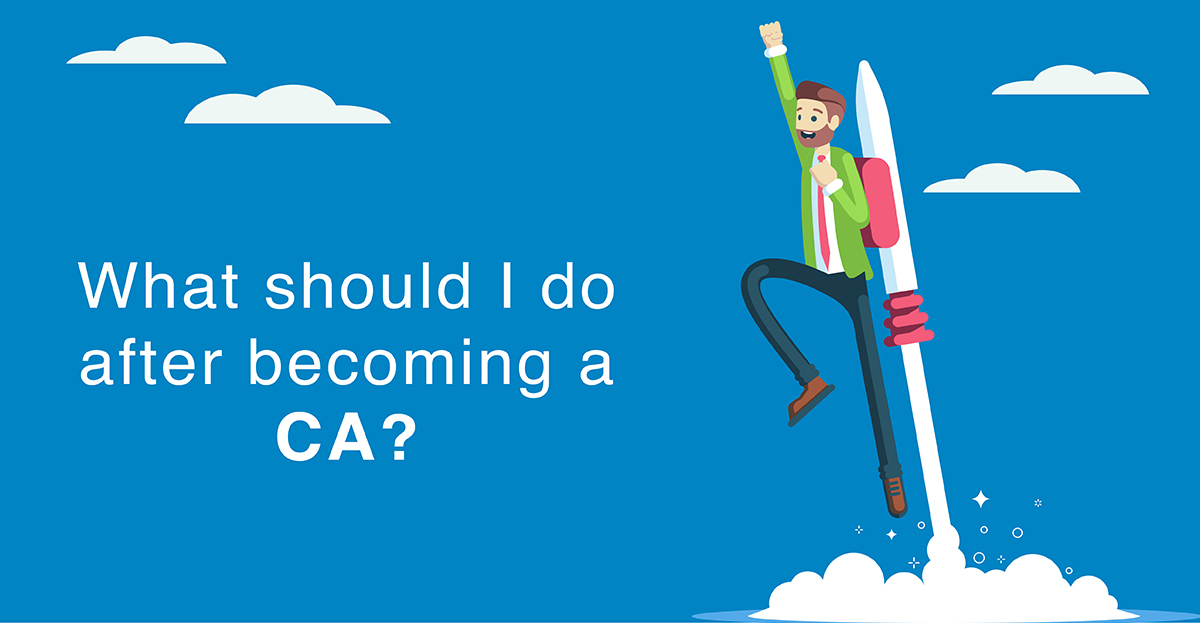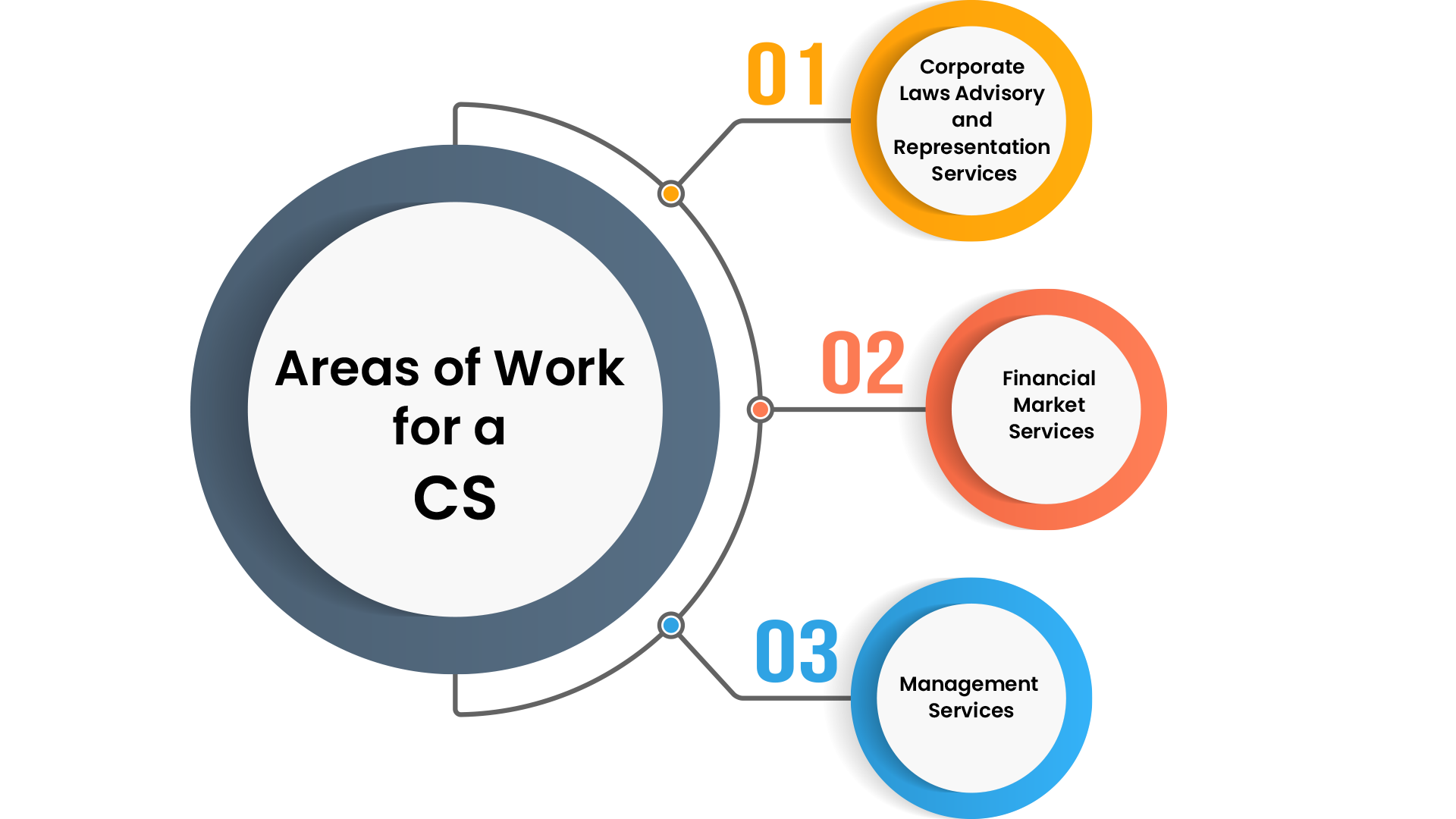Which is the best option for you? CA, CS or CMA?
by Swati, on 23 May, 2019 6:00:00 PM
CA, CS or CMA?
What’s the best option for you?
Introduction
Through the weeks and months we’ve had several blog posts that talk about different professional courses such as CS, CMA or CA. While there a number of similarities among the three, they are still far apart from one another. So in order to pick the right one for yourself, you need to first understand your aptitude, your academic background, your interests and ask yourself a very important question – ‘Do I see myself doing this for a living for a long time to come?’ Each of these courses has a long and difficult academic and training period that you have to mentally prepare yourself for. Let us look at the courses in detail so you can answer the question for yourself:
There are a lot of similarities when it comes to the syllabus in all three courses – CA, CS and CMA. However, the main focus of CA is Finance, Auditing and Tax. The main focus of CMA is the in-depth study of Cost and Management Accounting whereas CS gives you a detailed study structure for Company Law and Company Secretaryship.
At the end of the day, you will need to have a clear idea of what your primary focus is in terms of what you want to study and what you wish to accomplish by studying that course. A lot has to do with your aptitude as well as interest.
In order to pursue any of these courses, you must first understand what each job position entails and then you can go on to decide which one fits you and your personality.
Chartered Accountant
A CA or a Chartered Accountant is a professional accountant who is hired by individual and companies alike to handle financial operations such as auditing financial statements, filing of corporate tax returns and financial advising. All in all they help with all financial requirements for a company. CAs can also choose one line of work in which they’d like to specialize.
A Chartered Accountant is hired to do more with the external appearance of a company. In other words, a CA’s job is to assist and advice shareholders and investors on their financial needs.
In order to become a CA in India, you must complete the CA Foundation, Intermediate and Final courses from the Institute of Chartered Accountants of India (ICAI).
Convinced pursuing a CA is the best option? Sign up for our online video lectures that cover the entire syllabus now!
Company Secretary
A Company Secretary, Corporate Secretary or simply Secretary is a person responsible for the efficient administration within a company by ensuring all employees as well as the board is in compliance with statutory, regulatory and legal requirements. A CS is also responsible for ensuring all board decisions are being successfully implemented within the company. It is a Company Secretary’s job to oversee every employee – lower, middle and upper management operates within the law; keep and maintain company records, communicate with shareholders and directors, among other things.
In order to become a CS in India, you must complete the CS Foundation, Executive and Professional courses from the Institute of Company Secretaries of India (ICSI). There are many advantages of the CS course offered by the institute.
If you want study material pertaining to the CS Syllabus, install our mobile app now!
Cost and Management Accountant
A CMA or a Cost and Management Accountant is responsible for the allocation, management and regulation of funds in a business; any business. A Cost and Management Accountant is someone who performs these duties. A job as a CMA is a rewarding and a highly paid as well as respectable one.
A CMA deals more with the responsibility of the internal goings-on of a company and what steps to take within the organization.
In order to become a successful CMA in India, you must complete the CMA Foundation, Intermediate and Final courses from the Institute of Cost Accountants of India (ICMAI) and there are many advantages of pursuing this CMA course from such a respected and sought after institution.
We have amazing study material that covers the entire syllabus of the CMA course. Sign up for a free trial below to see what it is all about!
What are my career options after completing my final course from these institutes?
Now that we’ve covered the definition of each job title, it’s time to delve deeper into what you can expect in the career world if you’ve completed all three courses from any of the above institutes.
Career options after CA course.

There are many advantages of a CA course from ICAI. The Chartered Accountant position is held in high regard and the demand for CAs is ever-growing. So, if you’ve settled in on becoming one, this is the best time.
- Joining the corporate world: You can enter into the finance and accounting departments of companies. You could take up auditing. Tax auditing. Perhaps financial reporting is more your cup of tea. Maybe you want to get into fund management. Or even investment planning. Or you may deal with merges! A wide variety of options to choose from.
- Working in the banking sector: You can join a bank to work in the domain of finance. Forecasting, funding, strategies, etc. You can also use this experience to enter into the corporate world
- Working in the industry or Government service: You can join an industry or government organisation. You could work as a business advisor by developing, analysing and reporting on information needed for business decisions
- Working as a global accountant: You can choose to render your services in the area of financial reporting globally. Avert or detect fraud by scanning financial statements of big MNCs. You could also work as a valuer valuating assets and liabilities
- Working in the educational sector: You could work as an educator for colleges and universities. You could even set up your own educational centre!
- Higher studies: You can also choose to pursue higher studies if you wish to become a CA lecturer or professor in reputed academic institutions.
Career options after CS course.

There is no dearth in career options if you’ve completed all three of your CS courses. Almost every field and every company, big or small, requires a CS and you can understand more about what a CS is expected to do below:
A Company Secretary’s scope of work includes:
- Being a legal expert; a compliance officer and works only for that company.
- Being an expert in corporate laws, securities laws & capital market and corporate governance
- Being Chief Adviser to the board of directors on best practices in corporate governance
- Being responsible for all regulatory compliance of company
- Being the corporate planner and strategic manager for a company
To expand even further, these job profiles include the following:
Corporate Governance and Secretarial Services
- Corporate Governance Services
- Corporate Secretarial Services
- Secretarial/ Compliance Audit and certification Services
Corporate Laws Advisory and Representation Services
- Corporate Laws Advisory Services
- Representation Services
- Arbitration & Conciliation Services
Financial Market Services
- Public Issue, listing and Securities Management
- Takeover Code, Insider trading, Mergers & Amalgamation
- Securities Compliance and Certification Services
- Finance & Accounting Services
- Taxation Services
- International Trade & WTO Services
Management Services
- General/ Strategic Management
- Corporate Communication and Public Relations
- Human Resources Management
- Information Technology
Here is the above visualized in a nice flowchart:

If you wish to pursue higher studies in the field of CS, then teaching is also a viable and conducive option. The CS course from ICSI is recognized by the various renowned universities across India and overseas, if you’re looking for admission into a Ph.D course. It also provides utilization of services of members by various professional/educational bodies for academic pursuits. The ICSI conducts a Post-Membership Qualification (PMQ) Course in Corporate Governance as well.
Career options after CMA Course.

There is no shortage of jobs or career options for the CMA professional, and neither is there a lack of industries. Nearly every industry needs a CMA. Cost Accountants are always in high demand in the Public and Private sectors, Banking and Finance, Developmental Agencies, Education and Research, you name it! Some common job titles for CMA professionals include:
- Finance Manager
- Financial Analyst
- Financial Controller
- Chief Financial Officer (CFO)
- Certified Management Accountant
- Finance Director
- Senior Financial Analyst
- Chairman
- Managing Director
- Chief Executive Officer
These are only a few among the many job avenues you can seek employment in, as far as the private sector goes. In the government sector, you can be working in the all-India cadre - ICoAS which is the Indian Cost Accounts service and is as prestigious as the civil service posts of IAS, IPS and IFS. And if that’s not your cup of tea, you can always teach CMA by gaining the necessary academic qualifications.
Frequently Asked Questions (FAQs)
Can I pursue all three courses – CA, CS and CMA at a time?
As far as the question of pursuing all three courses, there is no right or wrong answer. Yes, you can pursue all three courses simultaneously, especially if you are doing your studies online. By doing so, you can weigh your strengths and weaknesses in all facets of accounting and finance and choose a career path. The cons for this, however, are that you will have take on the extra cost of doing the courses at once (which may come up to a lot) as well as dealing with the extra stress of handling examinations of all three courses. You might also have to take prior permission from the respective institutes and abide by their policies. It’s better to get all these concerns out of the way before setting out on such a challenging endeavour. Also, each Institute conducts their exams independently of each other, and so there might be clashes with exam dates. If that is the case, you will have prioritize which course you want to complete first.
What are the advantages of CA course?
Apart from all the points mentioned above, here are some advantages of a CA course from ICAI:
- Financial security: The average starting package for a newly minted CA is around 7 lakhs per annum. This is on par with even computer science graduates. And the education is for a fraction of the cost.
- Great ROI on educational costs: The CA course from ICAI is much lesser than any engineering course. You can expect to pay as little as Rs. 50000 if you clear all your exams in the first attempt! (As of 2018). Not only that, you will get some stipend coming in while you do your practical training. So, you’ll get your money back on education almost immediately!
- Great Demand for CAs: CAs are always in demand. In fact, demand is greater than the supply. So, chartered accountancy, for the foreseeable future, will never become saturated.
- Chances to work abroad: As a CA, you’ll get ample opportunities to work abroad if you so wish. Canada, US, UK, Hong Kong, New Zealand, just to name a few.
- Opportunities for further study: You can choose to leverage your CA qualification into higher degrees. For example, about 100 Indian Universities recognize a CA qualification as equivalent to a post-graduate one for entrance into their Ph.D programmes.
What are the advantages of CS course?
- Well-paying job: A CS is a well-paying job. While the beginnings might be humble, there is a lot of scope of getting into bigger companies and earning a substantial amount of money.
- Something out of the ordinary: In a world of doctors and engineers, a job as a CS is not only highly sought after but also makes you stand out in the crowd.
- Collaborations: The ICSI has Memorandums of Understanding (MoU) with renowned academic institutions such as IGNOU and ICAI, London – another plus which you can add to your existing skill-set.
What are advantages of CMA course?
- Higher pay: CMA professionals also have great remuneration packages. CMA certification holders from an institute such as ICMAI, earn 67% more than their non-certified counterparts.
- Fast growing career option: A professional CMA certification is considered one of the highest forms of professional certification in the field of accounting and management, and it is popular as much as it is a fast growing career option.
- Domestic and Foreign Options: With a globally-acknowledged CMA certification, your chances for growth, both within the country and abroad increase.
Decision Time
We hope we were able to help to some degree as to how the CA, CS and CMA courses differ from one another. As an end note, we’d suggest you visit the websites of the respective courses and gain further insight into what you can expect going into the field you choose. Apart from this, you can also speak to people who have pursued these courses as well as these career options to get a clearer picture of what’s to come.
Choose wisely and give it your best shot!
And if you haven't yet, don't forget to sign up for our online video lectures that cover the entire syllabus for the CA, CS and CMA courses now:










